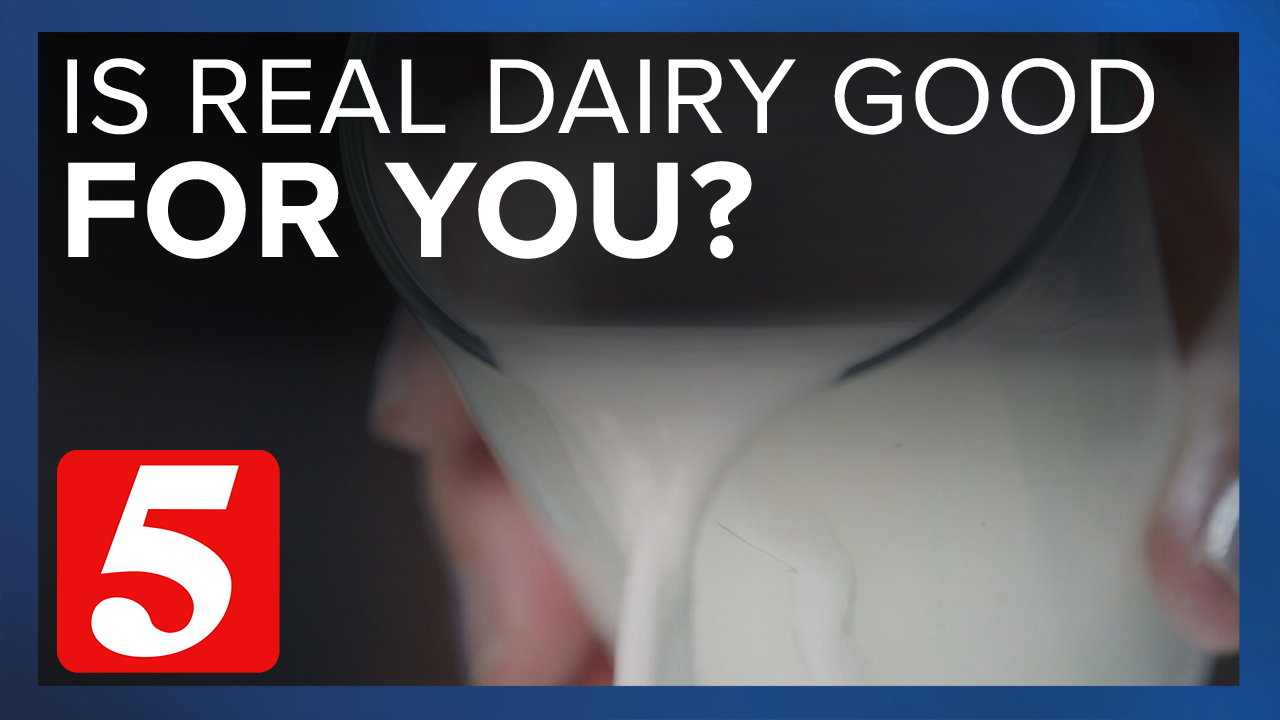NASHVILLE, Tenn. (WTVF/CONSUMER REPORTS) — Have you checked out the dairy section in the grocery store lately? You've got a lot of choices now. It's not just skim, two percent and whole milk. There's a wide variety — almond, oat, rice, pea, coconut, cashew and sesame milk to name a few. Some people prefer the taste of these other milks, others think plant milk is healthier. But it’s important not to forget the health benefits of real dairy.
Milk was once a staple of the American diet, and the dairy industry encouraged us to sip it at every meal. But is dairy for everyone?
"There are pros and cons to having dairy in your diet. Real dairy has a lot going for it because it's high in calcium, protein and potassium. But it’s also high in saturated fat and some people can’t tolerate it," said Trisha Calvo with Consumer Reports.
Not all fats are created equal. Increasingly, studies have found that eating moderate amounts of full-fat dairy doesn’t raise your risk of heart disease or stroke, and may be beneficial.
Drinking milk is linked to improved bone health, especially in children and adolescents. It can also reduce the risk of cardiovascular disease and Type 2 diabetes.
But if cow’s milk just isn’t your thing, yogurt is a great pick because it’s packed with healthy probiotic bacteria.
"Plain yogurt is best, with a little fruit, honey or maple syrup for sweetness. But be wary of flavored yogurts, which can be high in added sugars, and that can offset the health benefits," Calvo said.
Consumer Reports nutrition experts say to choose a yogurt with 6 grams or less of added sugars.
"A daily serving of yogurt and one of cheese is enough for general health. And some cheeses, such as cheddar and mozzarella, have probiotics, too," Calvo said.
So consider the benefit before putting dairy out to pasture.
If you do want to drink plant milks, look for the “original” or “plain'' in the name. These versions often contain added sugars, as do flavored plant milks — so look for “unsweetened” on the label.




